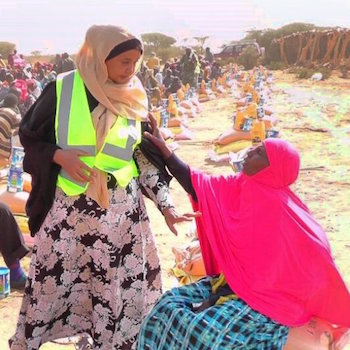 Diaspora groups have emerged as key humanitarian actors in situations of protracted displacement and conflict. They are often the first to assist in acute emergencies and remain engaged during lengthy and complex crises. Their remittances reach remote areas and hard-to-reach populations, surpassing humanitarian aid sent to fragile states six times.
Diaspora groups have emerged as key humanitarian actors in situations of protracted displacement and conflict. They are often the first to assist in acute emergencies and remain engaged during lengthy and complex crises. Their remittances reach remote areas and hard-to-reach populations, surpassing humanitarian aid sent to fragile states six times.
On Friday 28 February, the University of Nairobi launched a new collaborative research project, Diaspora Humanitarianism in Complex Crises (D-Hum). The project brings together Danish, Somali and Kenyan researchers. Focusing on Somalia, D-Hum will explore how Somali diaspora groups mobilize, channel and deliver humanitarian assistance to Somalia through various humanitarian infrastructures that facilitates or constrains it.
The D-Hum research project is a collaborative undertaking involving: the University of Nairobi (UoN), Rako Research and Communication Centre (RRCC), Hargeisa, Somaliland; the Rift Valley Institute (RVI), Nairobi; and the Danish Institute for International Studies (DIIS), Copenhagen, Denmark. It is funded by the Danish Consultative Research Committee (FFU) as part of the development research funding provided by the Ministry of Foreign Affairs of Denmark.
The launch at the University of Nairobi, provided an opportunity to share research ideas and broaden avenues of collaboration with other organizations and individuals working on similar issues in Somalia and other countries.
Panelists
Karuti Kanyinga
Institute for Development Studies, University of Nairobi
Nauja Kleist
Danish Institute for Development Studies
Mohamed Hassan
Rako Research and Communication Centre
Peter Albrecht
Danish Institute for Development Studies
Mark Bradbury
Rift Valley Institute
Sahro Koshin
PhD Scholar
Ahmed Musa
Post-doctoral Candidate, University of Nairobi



